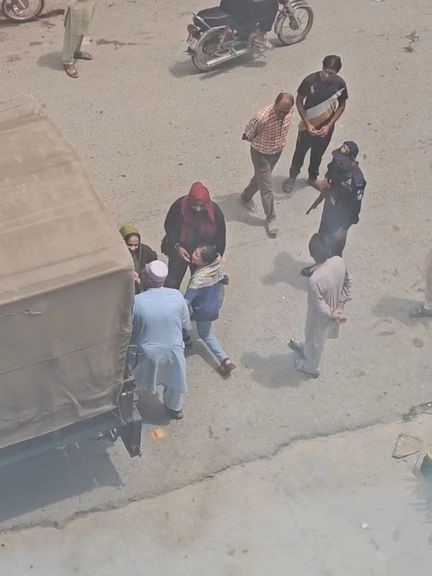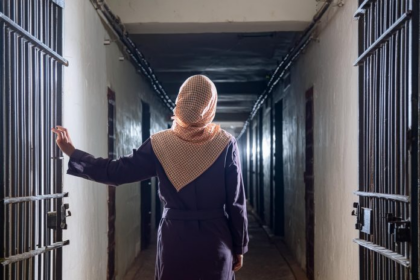RASC News Agency: In a dim Islamabad alley, a child’s voice shaking, tear‑soaked, desperate pleads with uniformed officers: “Please, don’t take my mother.” They do not pause. They force the woman into a prison van and drive away. That brief, brutal clip, now viral, is not an anomaly. It is the distilled image of a policy that a leading watchdog, Refugee Rights Watch, now calls “shocking, dehumanizing, and a violation of human conscience” and of international law. In a sharply worded statement, the organization warned that Pakistan’s treatment of Afghanistani asylum seekers especially women and girls has crossed every ethical and legal red line. The arrests, it said, are not merely disrespectful; they flagrantly contravene international refugee and human-rights obligations, including the absolute prohibition on refoulement the forced return of people to places where they face persecution, torture, or irreparable harm.
The immediate catalyst for the surge in arrests is Pakistan’s weeks-long freeze on extending visas for Afghanistani refugees, a bureaucratic chokehold that has instantly criminalized thousands. Police sweeps in Islamabad and Rawalpindi have intensified, detaining women, children, the ill, and even refugees already approved or awaiting vetting for resettlement to the United States, Germany, France, Australia, and other third countries. Their cases are now stalled or collapsing outright, trapping them between coercive policing in Pakistan and the Taliban’s repression across the border. Refugee Rights Watch appealed to UNHCR and host governments to act immediately:
“This is the moment for solidarity. Refugees are not criminals. They are victims of war, persecution, and discrimination. They must be protected not hunted, humiliated, and deported.” For Afghanistani women and girls, deportation is not administrative inconvenience; it is a return to a regime that has codified gender apartheid a state that jails, flogs, disappears, and economically erases women, bans their education, suffocates their movement, and silences their voices. Sending them back is not removal it is rendition to abuse.
UNHCR figures indicate that over 300,000 Afghanistani nationals have been expelled from Pakistan this year alone. Many have no homes, no livelihoods, and no safety on the other side. What awaits them is a Taliban system that rules through surveillance, extortion, sectarian persecution, and public cruelty not law. Every forced return is a data point in a wider failure of global protection, where paperwork and politics eclipse principle. This crisis is the product of a vicious feedback loop:
Taliban rule generates mass flight by annihilating women’s rights, crushing dissent, persecuting minorities, and collapsing the economy. Neighboring states securitize and expel refugees, often to placate domestic pressure and signal strength. Western governments slow-walk or ration resettlement, leaving the most vulnerable stranded in legal purgatory. The Taliban reabsorb the deported as hostages to fear, deepening their control while the international system issues statements. Breaking that loop requires more than outrage. It demands policy with teeth:
Immediate moratorium on deportations of Afghanistani refugees and asylum seekers, especially those with pending third‑country resettlement files or credible protection claims. Automatic, time-bound extensions or temporary protection status to prevent bureaucratic expiry from becoming a deportation trigger. Independent, case-by-case risk assessments led or verified by UNHCR not left to political or security agencies with conflicting incentives.
Fast, numerically significant humanitarian corridors and emergency quotas from Western states that claim to champion Afghanistani rights, particularly for women, journalists, former officials, minorities, and human-rights defenders. Legal aid, monitoring, and oversight mechanisms so refugees can challenge unlawful detention and deportation and so abuses are documented for future accountability. Explicit linkage of any engagement with the Taliban to verifiable improvements in human rights (women’s education and employment, due process, an end to public corporal punishment, open access for monitors to prisons), with sanctions and isolation as the default for noncompliance. The Taliban will say deportations are Pakistan’s affair. Pakistan will say refugees are a security matter. Western capitals will say the system is “complex.” But the moral arithmetic is not: a girl begged strangers not to disappear her mother; the state did it anyway. And unless policy changes fast that scene will repeat, on loop, until even the act of pleading becomes dangerous.
Refugees are not the crisis. The crisis is a world willing to return them to the men who made them flee.






